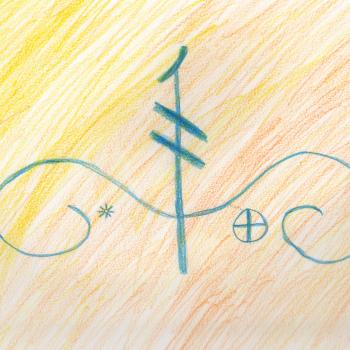At last month's Women and the LDS Church conference, Laurel Thatcher Ulrich's stimulating plenary address was a guided romp through the archives, sharing some of the best bits of the sources for her latest project on 19th-century Mormon women. Though her tone was upbeat and very funny, her theme was tragic: the appalling scarcity of surviving Mormon women's diaries. So scarce are women's diaries, which she carefully distinguishes from long-after-the-fact personal histories, that she has been forced to look further afield, to autograph books and handicrafts, for a window into that historical moment. Nevertheless, she emphasized the richness of the records that do exist, the power of their implicit witness and invitation.
Ulrich is, on this point as on every other, indisputably correct. The 19th-century women's diaries that survive today are invaluable windows to our collective past, precious not only as witnesses of the lives they represent, but also as invitations to remembrance; that is, as invitations to interpret our lives in their images. And if these records are so precious, the corollary follows easily: the 21st-century diaries that survive into the 23rd will be a similarly invaluable window, witness, and invitation. Ergo: keeping a record of one's life is a gift to the future.
This is a lesson that millions of women have deeply internalized, though usually without the rich history that Ulrich brings to the question. For most intents and purposes, personal blogging is the contemporary form of diary-keeping. The ubiquity of women's personal and family blogs, the time their creation and curation consume, the diligence required of the blogger week in and week out: these all testify to some deeply-seated motivation at work. Yes, some of it is status-seeking, some of it is community-building; contrary to conventional wisdom, these two functions are deeply entwined, because leaders and communities need each other. But there are certainly easier ways to seek status and build community than through the laborious process of writing, editing, and uploading text and photos to a blog.
In my experience, consisting entirely of hundreds of procrastinatory hours idled away reading strangers' blogs online, the strongest motivation for family blogging is the drive to preserve for the future. Blogging is like canning, except instead of putting up peaches or cherries for the winter, we preserve joy, intimacy, youth, and life in the form of photographs and narratives. Like the industrious ant preparing for winter, we electronically chronicle the events of our family life—and print them in books, and accumulate them on bookshelves—so that we can relive them someday, or so that our children can. A row of glimmering Mason jars in the pantry, the archives of our family blogs reassure us that today's sweetness and nourishment will be there to sustain us in the future.
Not surprisingly, I have many objections to this line of thinking, most of which are ridiculous and should be dismissed out of hand. I pride myself on a poor memory, for one thing, and am eager to allow my younger selves to retreat swiftly; I recently re-read a journal from my freshman year of college, and my dominant reaction was appalled half-recognition. Nineteen-year-old Rosalynde is not somebody I want to invite into my mental space very often. Furthermore, looking at old photographs and video of my children brings me more despair than joy. Those precious, perfect little bodies, voices, and minds are gone forever, along with the young mother who gave birth to them. The past is really no prologue; it is a frozen burial ground of youth, innocence, and good skin.
I grant, however, that most women have found healthier ways to integrate their past selves into the present, and that most mothers' thoughts about old photos of their kids are somewhat less morbid and bombastic. Still, the notion of blogging to preserve experience for the future troubles me. For one thing, this kind of blogging directs the mind toward a fantasy of the future or an idealization of the past, and away from the present moment, the beating heart and the falling breath. In fact it doubly re-routes the mind: forward to an imagined remembrance of the past. The present becomes merely an instrumental passage through time, a means to a deferred happy end, rather than the gracefully given, gratefully received substance of life itself. The temporal separation of mind from body is a close cousin to anxiety. I don't think it's coincidental that so many women experience anxiety in connection with blogging: it's the natural consequence of living with one's future head in the past.
There's a deeper problem with blogging as an exercise in saving for the future, and that's the kind of future it necessarily presumes. Behind the drive to save for the future lurks an assumption that the future holds scarcity and deprivation. This is a prudent assumption to make when one is setting up one's retirement account, no doubt. But when it governs our emotional lives it breeds fear that blinds us to the fullness of the very present we are so desperate to preserve. On the one hand, this is an entirely natural fear, especially for women as we undergo the seismic emotional shifts that come from aging into and out of fertility and desirability. But it is also, when you think about it, an attitude of profound faithlessness: the expectation that the simple continuation of life and breath, the particular grace and givenness of every new day, will not be enough to sustain us on its own; that joy and meaning must come in the forms we prefer, even if we can only glimpse them in electronic images. No: this, not the fleeting babyhoods of our children, is the true emotional poverty we should fear. Here are words I wish I had written: "Only a fearless and faithful submission to the givenness of the present moment in its entirety opens the way to a world in which goodness can live."





